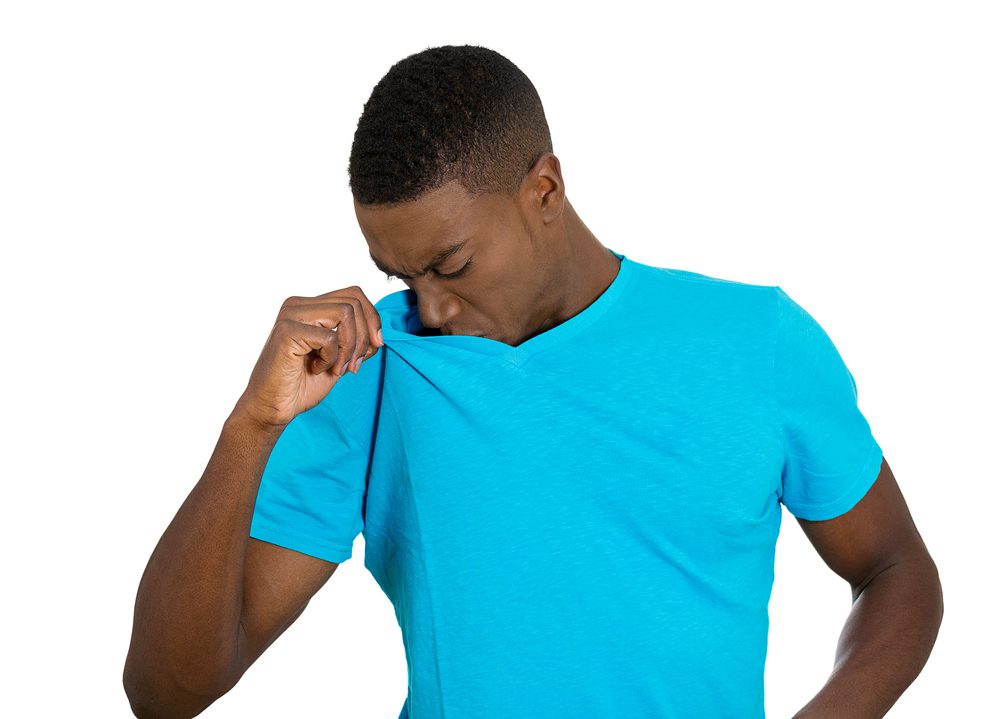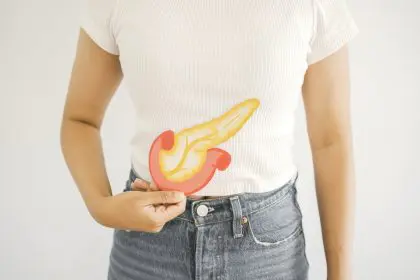Everyone’s had that moment of panic when you realize you forgot deodorant on a hot day. The familiar funk of body odor is something we all dread. But what if your sweat doesn’t smell bad at all? What if it actually smells… sweet?
While you might think smelling like fruit instead of a gym locker is a win, that pleasant aroma could actually be your body waving a serious red flag. That sweet smell might be telling you something’s wrong beneath the surface.
Why your body might be giving off candy vibes
Let’s get one thing straight — sweat itself is basically odorless. What creates that distinctive smell is the bacteria on your skin breaking down the proteins in your sweat. This usually results in that classic “body odor” we all know and hate.
But sometimes your sweat can carry compounds that give it a distinctly sweet aroma. Imagine smelling like fruit punch without using any scented products. Sounds nice in theory but might actually be cause for concern.
Your body is incredibly complex, and sometimes it sends signals in unexpected ways. That fruity scent wafting from your armpits or during your workout could be more than just a quirky bodily function — it might be a biochemical message worth paying attention to.
When your sweat smells like a fruit basket
If you’re noticing a distinctly fruity aroma coming from your sweat, especially if it’s a new development, this could be your body’s way of signaling a potentially dangerous condition called diabetic ketoacidosis or DKA.
DKA primarily affects people with type 1 diabetes, though it can occasionally occur in those with type 2 diabetes during periods of severe illness. It happens when your body doesn’t have enough insulin to process glucose properly. Without enough insulin, your body starts breaking down fat at a dangerously rapid rate, producing ketones.
These ketones can give your breath, urine, and yes, even your sweat, a fruity smell often compared to pear drops or nail polish remover. Think of it as your body literally trying to off-gas the evidence of a metabolic emergency.
What makes this particularly concerning is that DKA isn’t just an inconvenience — it’s a genuine medical emergency that requires immediate treatment. If you’re experiencing this fruity odor alongside excessive thirst, frequent urination, nausea, stomach pain, weakness, shortness of breath, or confusion, don’t wait to see if it resolves on its own. Get medical help right away.
This is especially important if you have diabetes or if you haven’t been diagnosed but have risk factors. DKA can develop quickly, sometimes in less than 24 hours, and can be life-threatening if not treated promptly.
When your sweat smells like breakfast
If your sweat or urine has taken on the distinct aroma of maple syrup, it’s not because you’ve been mainlining pancakes. This distinctive smell could be a sign of maple syrup urine disease, a rare genetic disorder that affects how your body processes certain amino acids.
MSUD is typically diagnosed in infancy, so adults suddenly developing this odor likely have something else going on. The condition prevents your body from properly breaking down branched-chain amino acids found in protein-rich foods. When these amino acids build up in your system, they can cause your bodily fluids — including sweat — to smell like maple syrup or burnt sugar.
This condition is serious business. If left untreated, it can lead to seizures, coma, and even death in severe cases. Early symptoms beyond the distinctive odor include poor feeding, vomiting, loss of appetite, irritability, weakness, and developmental delays in infants.
Management typically involves a highly specialized diet under medical supervision. In some cases, liver transplantation may be necessary to restore the missing enzyme function.
When your diet is making you smell like dessert
Before you rush to the emergency room in a panic, there’s a much more benign reason your sweat might smell sweet — your food choices.
Certain foods contain compounds that can change your body odor when metabolized. Fenugreek, a seed commonly used in Indian and Middle Eastern cooking, is perhaps the most notorious culprit. This spice contains an aromatic compound called sotolon that can make you smell like maple syrup after consumption.
Other foods that might affect your scent include:
Cumin, which can create a musky, sweet smell Garlic and onions, which release sulfur compounds through your pores Curry spices, which contain a variety of aromatic compounds Alcohol, which releases acetaldehyde when metabolized, creating a sweet smell
The effect is usually temporary, lasting only as long as it takes your body to process and eliminate these compounds. If you’re concerned about the sweet smell but suspect it might be food-related, try eliminating the suspected food from your diet for a few days and see if the odor disappears.
When to worry about your sweet smell
The occasional whiff of sweetness after a curry dinner isn’t cause for alarm. But there are definite red flags that should prompt a call to your doctor:
- The sweet smell comes on suddenly and you have diabetes.
- The odor persists even when you haven’t eaten foods known to cause it.
- The smell is accompanied by other symptoms like excessive thirst, frequent urination, unexplained weight loss, nausea, or confusion.
- You’ve never been diagnosed with diabetes but are experiencing symptoms along with the sweet smell.
- You’re experiencing the maple syrup smell alongside neurological symptoms like confusion or seizures.
Trust your instincts here. Your body odor is as unique as your fingerprint, and you know what’s normal for you. A persistent change in how you smell can be an important clue that something’s off with your internal chemistry.
The takeaway on sweet sweat
While body odor isn’t anyone’s favorite topic of conversation, paying attention to changes in your personal scent can actually be an important health tool. Your sweat can reveal surprising information about what’s happening inside your body.
The bottom line is that new, persistent sweet-smelling sweat — especially with a fruity or maple syrup quality — deserves attention, particularly if you have other symptoms or risk factors for diabetes.
Don’t let embarrassment keep you from mentioning this symptom to your healthcare provider. Doctors have heard it all, and this particular detail could be crucial in identifying a serious condition before it progresses.
Your nose knows when something’s off, so take a hint from your body’s chemical signals and get checked out if that sweet smell seems suspicious. That fruity aroma might just be your body’s way of saying something needs attention, and listening to it could make all the difference.










